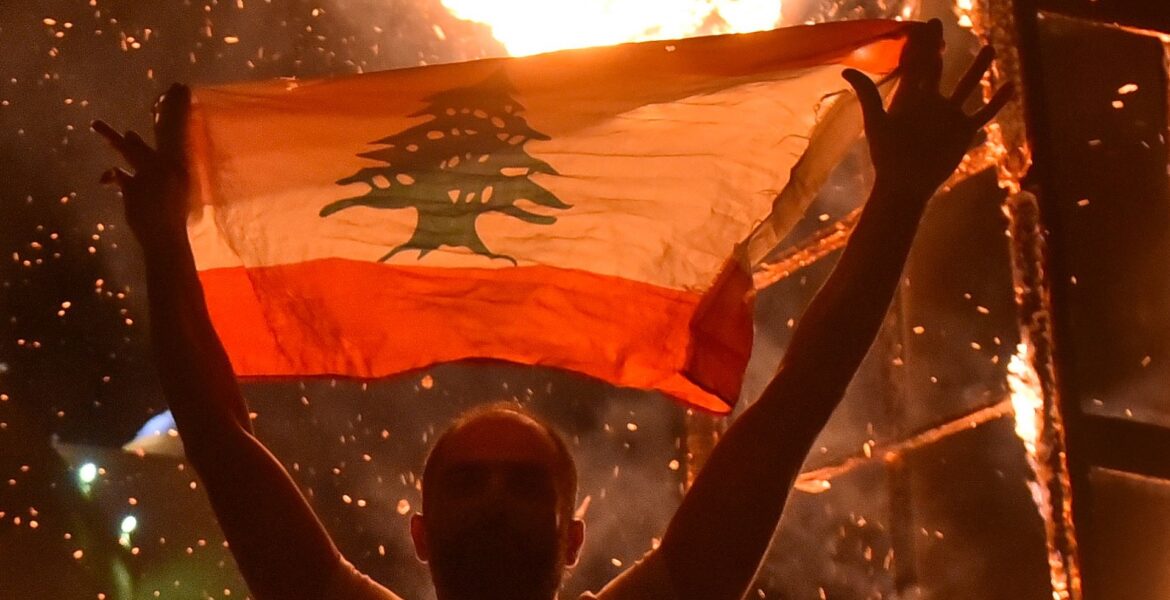As Lebanon's economic and political crisis continues to spiral, and while much of the world waits for the upcoming Lebanese elections in May of this year, something surprising has quietly happened without much fanfare.
Something that would have been almost unthinkable and almost taboo just a few years ago - the conversation about the federalisation of Lebanon has become public.
For many years, Lebanese have privately discussed federalisation as a possible solution to many of the country's economic and political problems, yet no one, including politicians, made a mention of it into the public sphere as they would be condemned as a traitor.
However, over the last several months something has definitely, yet quietly changed.
While federalisation was once regulated to just private chats and perhaps social media discussions, all of a sudden it is no longer taboo and it's even coming up regularly on political talk shows.
It is even being advertised by federalisation project advocates on popular Lebanese channels.
In fact many politicians, who had previously feared the backlash of both the general public and media, are now publicly speaking in favour of federalisation, using a little discussed amendment to the post 1975-1990 Civil war constitution.
The article in question calls for the discussion of federalisation as a possible solution to Lebanese political problems.
One question that we as Levantine Greeks (Rûm) should ask is what will happen to the Greek Orthodox and Greek Catholic communities in Lebanon if federalisation does occur?
It is this writer's opinion that we are the least prepared for this outcome.
Yes, we do have some institutions, such as schools for the Greek Orthodox and Greek Catholic, but we do not have nearly enough like the other Lebanese communities do.
Other communities such as the Maronites and the Armenians have their schools teaching their faith and language, and of course French, Arabic and English are taught in all schools including Muslim and all public schools.
So all of these communities have a way of protecting and nurturing their identities while we attend these institutions out of necessity as we sometimes have no alternative.
These institutions, while benefiting our people of course in day to day life, further deters from our Rûm identity as we become "socially Maronite, Armenian or Arab."
Another question we must ask ourselves is: What happens to the Rûm in a Muslim-majority area if a federalised country emerged?
READ MORE: Our beloved Lebanon will never be alone again – Bridge of friendship between West and East.
They may not have access to schools and municipal institutions that teach and use their Greek Orthodox faith or language, same as Greek Orthodox or Greek Catholics that are in Maronite or Armenian majority areas.
Also further complicating matters is the areas that Rûm dominant may fall into a Maronite majority district for example, and of course the default for these people would be to go to a public school or a Maronite school.
The same goes for those of our community that are in Armenian, Druze or Muslim areas.
It's time for we as a Rûm community to start thinking of solutions to these questions that we are facing, possibly very quickly as our country could be heading for federalisation in the near future.
We need to start looking for ways to see how we would live in this type of situation and it is far past time for us rely on others to do things for us, and allowing members of parliament from other sects to elect Rûm MPs.
We need to start holding those members of parliament and politicians who run as Rûm accountable and ask ourselves if their interests best suit our community or is it just themselves or others?
It is the opinion of this writer that these questions must be dealt with head on in order to preserve what's left of our Lebanese Greek community.
Elias Bechara is a writer interested in Lebanese and wider Eastern Mediterranean issues, as well as Byzantine history.


